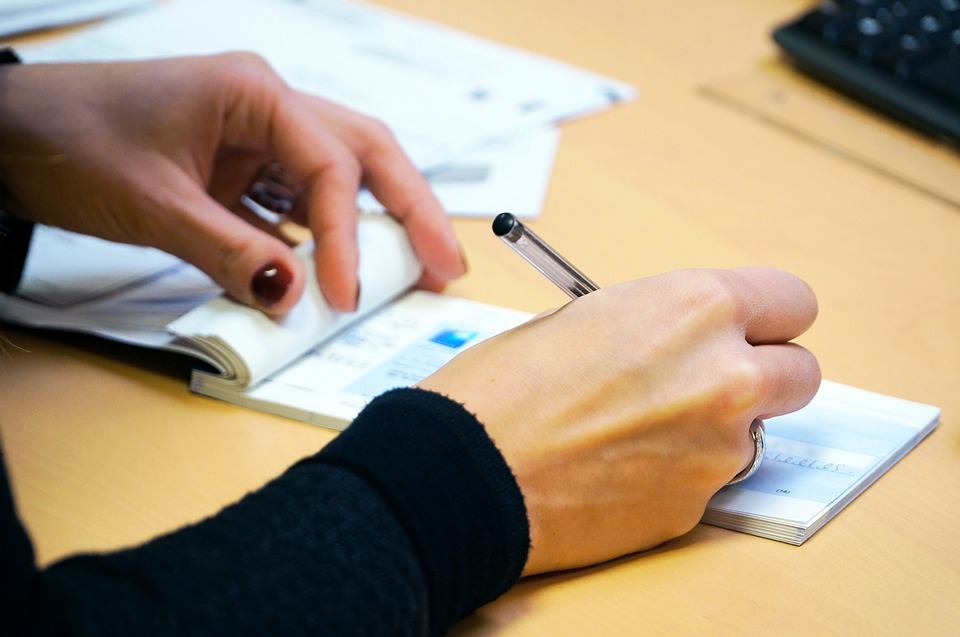Some consider it old and inefficient, but many businesses just can’t stop using them.
Having been used for hundreds of years, check usage isn’t going away any time soon.
But why are people around the world still using checks, and will they ever move away from them?
The usage of checks has indeed been on the decline in recent years. For instance, business owners in the United States wrote 37.3 billion checks in 2000. Ten years later, the number of checks written declined by over 50% coming to 18.3 billion.
However, despite this decline, checks remain a preferred choice for many companies when it comes to B2B payments.
But is it time to let checks go?
Having being used in one form or the other during the roman empire, and in printed forms in the contemporary world, you would be forgiven to think that checks are somehow anachronistic.
Today the world is mostly digital, and consumers are provided with technological means of payments like Bitcoin, PayPal, Square, etc.
Yet, amid all these advancements checks continue to remain relevant.
Writing a check means that you instruct your bank to pay the recipient.
When a customer deposits a check into your account, your bank will send it to the bank of the person who gave it to you. The bank will take time to attest whether the check is legitimate and that the issuer has adequate funds to cover the amount before forwarding it to your account.
Below, you’ll see some of the reasons that make most business owners prefer to make their payments using checks.
Processing Fees
There are over 27,000,000 small businesses in the US. This is according to a survey by Intuit Inc. from Mountain View, California. 55% of these businesses do not accept credit and debit cards because they cannot afford the processing fees required for accepting credit cards.
Businesses are charged between 2 and 5 percent in transaction fees on every credit card transaction.
On the other hand, personal checks have almost zero interchange fees and allow customers to pay for items without carrying cash.
Businesses with thin margins, therefore, find it unfavorable to use electronic payment methods.
Security
Checks in the 21st century are more secure than those offered in the 1990s. This is mainly due to the availability of electronic checks.
Acceptance of electronic check through Telecheck aims to turn paper checks into electronic checks, and take responsibility for any fees incurred for any returned checks.
Electronic checks make it possible for merchants to receive money faster than those using paper checks. It also gives them the opportunity of ordering business checks online, while reducing the processing time significantly.
With electronic checks, merchants don’t have to waste time going to the bank as they can scan and send them electronically. They will only need to go to the bank if dealing with high-value checks.
Create a Trail
Some businesses prefer to use checks because they leave a verifiable audit trail without necessarily setting up new systems.
Checks document the amount of money that has been paid, leaving a trail of paper information. Once a check is written, the bank obtains a digital image of the document (both front and back).
A bank statement contains a list of all monthly transactions, but again a business owner may not recognize them all.
If a customer calls and claims that they didn’t receive a payment, a company can look on their check records to prove that the payment was indeed made.
Regulatory Fragmentation
Countries with robust banking regulations can influence the payments industry to adopt innovative systems for consumers.
European Union’s introduction of the Single Euro Payments Area to break down barriers when transferring euros across Europe is a great example to illustrate this.
In the US, even the largest banks are scrutinized by various bodies such as the Federal Reserve, the Individual States, the OCC, and FDIC. More than 6,420 commercials in the United States base their regulations on the individual regions or states.
In 2014, for instance, the five largest banks in the United States held about 44% of all bank assets. This makes the process of online payment subject to variations at the federal and state level.
Some businesses choose to stick to checks as their preferred payment method to avoid regulatory issues.
Some Customers Prefer Checks
A significant size of the population, especially those aged 40 and above were accustomed to using checks as of 2010. This is according to All Business.
About 71% of those who don’t use online means to pay bills prefer using checks because it is an easy way to keep records and gives them control over their spending habits.
Smriti Jain is the owner and senior content publisher at Financesmarti. Financesmarti is a website where she shares a lot of useful stuff for the people and business of India. This includes small business ideas and other banking information, as well. Smriti completed her education in science & technology from Delhi University. Smriti usually has interests in digital marketing now, and she has chosen this career for the full-time opportunity. The primary purpose of starting this blog to provide quality information on the banking industry to the people.

Leave a Reply